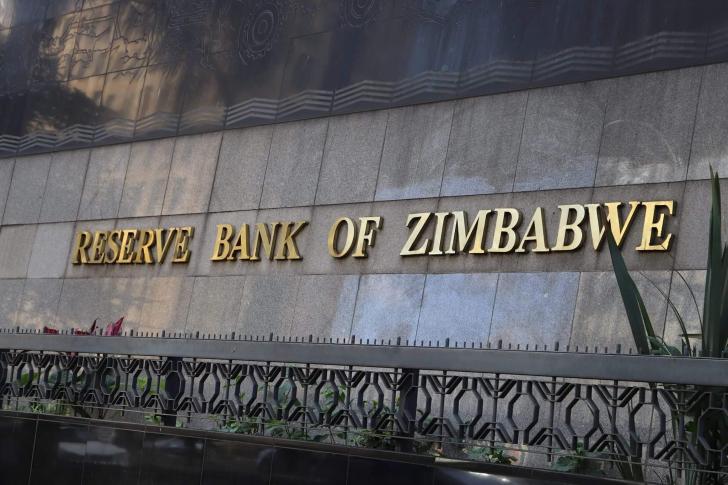News / National
RBZ raises bank policy rate to 35%
27 Sep 2024 at 14:29hrs |
0 Views

The Reserve Bank of Zimbabwe (RBZ) has announced significant measures to tackle resurgent exchange rate volatility and mitigate inflationary pressures. Effective immediately, the bank policy rate has been increased from 20 percent to 35 percent, while the amount of foreign currency an individual can carry outside the country has been capped at US$2,000, down from US$10,000.
RBZ Governor, Dr. John Mushayavanhu, made the announcement on Friday following a meeting of the Monetary Policy Committee (MPC) that took place on Thursday. The committee convened to discuss recent macroeconomic developments and the economic outlook, particularly amid concerns regarding the depreciation of the local Zimbabwe Gold (ZWG) currency against the US dollar.
While the economy showed relative stability after the adoption of the ZWG in April 2024, it has faced a rapid loss of value in recent weeks, primarily due to speculative activities in the parallel market. President Mnangagwa characterized these actions as economic sabotage, as the official exchange rate remained stable at below US$1, while black market rates surged beyond US$1.
To stabilize inflation expectations and address the recent inflationary pressures, Dr. Mushayavanhu outlined several bold measures. The MPC has decided to raise the bank policy rate significantly, aiming to curb money supply through loans. In addition to reducing the foreign currency limit for individuals, the Central Bank has also increased and standardized statutory reserve requirements for both local and foreign currency deposits.
The reserve requirements for demand and call deposits have risen from 15 percent and 20 percent to 30 percent, while those for savings and time deposits have increased from 5 percent to 15 percent, effective immediately.
Going forward, the RBZ plans to allow greater exchange rate flexibility to align with the rising demand for foreign currency in the economy. "The MPC is confident that these measures will effectively address emerging exchange rate risks, anchor inflation expectations, and stabilize prices in the near term," stated Dr. Mushayavanhu.
The RBZ had previously achieved notable monetary policy gains since the introduction of the ZWG, with month-on-month inflation averaging as low as 0.82 percent from May to July 2024. However, inflation rose to 1.4 percent in August 2024, with expectations for a further increase in September.
Despite an increase in foreign currency inflows of US$8,465 million during the first eight months of 2024, up 13.4 percent from the previous year, the volatility in the parallel market exchange rate continues to pose challenges for the economy.
Dr. Mushayavanhu emphasized the importance of vigilance against emerging risks to ensure ongoing macroeconomic stability in Zimbabwe.
RBZ Governor, Dr. John Mushayavanhu, made the announcement on Friday following a meeting of the Monetary Policy Committee (MPC) that took place on Thursday. The committee convened to discuss recent macroeconomic developments and the economic outlook, particularly amid concerns regarding the depreciation of the local Zimbabwe Gold (ZWG) currency against the US dollar.
While the economy showed relative stability after the adoption of the ZWG in April 2024, it has faced a rapid loss of value in recent weeks, primarily due to speculative activities in the parallel market. President Mnangagwa characterized these actions as economic sabotage, as the official exchange rate remained stable at below US$1, while black market rates surged beyond US$1.
To stabilize inflation expectations and address the recent inflationary pressures, Dr. Mushayavanhu outlined several bold measures. The MPC has decided to raise the bank policy rate significantly, aiming to curb money supply through loans. In addition to reducing the foreign currency limit for individuals, the Central Bank has also increased and standardized statutory reserve requirements for both local and foreign currency deposits.
Going forward, the RBZ plans to allow greater exchange rate flexibility to align with the rising demand for foreign currency in the economy. "The MPC is confident that these measures will effectively address emerging exchange rate risks, anchor inflation expectations, and stabilize prices in the near term," stated Dr. Mushayavanhu.
The RBZ had previously achieved notable monetary policy gains since the introduction of the ZWG, with month-on-month inflation averaging as low as 0.82 percent from May to July 2024. However, inflation rose to 1.4 percent in August 2024, with expectations for a further increase in September.
Despite an increase in foreign currency inflows of US$8,465 million during the first eight months of 2024, up 13.4 percent from the previous year, the volatility in the parallel market exchange rate continues to pose challenges for the economy.
Dr. Mushayavanhu emphasized the importance of vigilance against emerging risks to ensure ongoing macroeconomic stability in Zimbabwe.
Source - The Chronicle
Join the discussion
Loading comments…









































